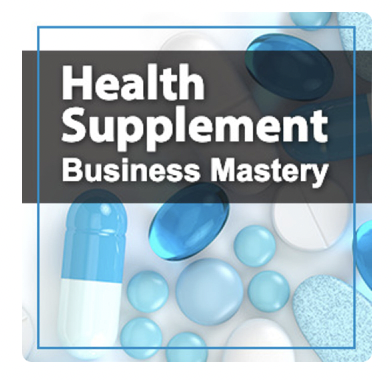Direct-response copywriting is a marketing strategy that aims to persuade potential customers to take a specific action, such as buying.
This marketing approach employs specific tactics and strategies that focus on the customer’s emotions, while also providing them with the information they need to make an informed decision.
One of the most important considerations of direct-response copywriting is the need to be ethical when using it.
There are those who believe that anything goes in direct marketing.
But that kind of approach erodes trust and can also land you in legal trouble with the FDA when in comes to dietary supplements.
With a dietary supplement sale, trust is one big part of the buyer framework that I employ with my one-on-one clients.
The Power of Ethical Persuasion
Ethical direct-response copywriting provides customers with honest and truthful information about the product or service.
While also making it clear how your dietary supplement can help them, and letting them decide for themselves whether to make a purchase.
This type of copywriting is typically longer than what most marketers are comfortable with.
The most common objection from marketers who are not familiar with the direct response approach is that people won’t read that much sales copy.
And they are always surprised when long form sales copy outperforms short copy every time.
When trying to sell anything, especially dietary supplements, more is always better with a complex sale.
For a dietary supplement there’s a lot to explain about how it works in the body, that can not be done with short copy.
Short copy for a dietary supplement does not enforce trust, because again it’s a complex sale that most people research heavily before buying.
The other aspect of direct-response copywriting that makes it work is that it leans into the negative in order to get an emotional response.
All buying decisions are made emotionally then justified with logic.
If those emotions are never stirred up then you can’t tap into them as a marketer.
And if you never tap into their problem state, then you’ve lost the emotionally buying decision opportunity.
Putting the prospect into the problem state through negative emotions in an ethical way can then turn the cold prospect into a solution state.
Which primes them to take action right then and their.
Eliminating the need to make multiple touch points with brand marketing before getting the sale.
From Headlines to Call-to-Action: The Elements of Effective Direct-Response Copywriting
The structure of direct-response copywriting typically follows a proven formula known as AIDA: Attention, Interest, Desire, Action.
The goal is to grab the reader’s attention, build interest in the product, tap into their existing desire to solve their problem, and then provide a powerful and clear call to action that motivates them to take the next step.
To achieve the AIDA structure, direct-response copywriting often starts with a strong headline, followed by a lead that describes the problem the product or service solves.
This approach uses emotion to build empathy with the reader, making it clear that the marketer understands their struggles and wants to help.
From there, the sales copy delves into the features and benefits of the product, using proof elements such as customer testimonials to support its claims.
It’s important to be specific about the features and benefits, and to avoid making vague or unsupported claims that could be seen as misleading.
The sales copy should also address any objections or concerns the customer might have, such as price, quality, or effectiveness, by providing justification and reassurance that the product will help support their problem.
When selling dietary supplements with direct-response copy you never want to claim your supplement can solve or cure.
There are very specific structure function claims that dietary supplements can make and many claims it can not. You can read more about what claims are allowed here.
The Importance of Ethical Direct-Response Copywriting in Marketing
Direct-response copywriting is a powerful marketing tool that can be used to persuade customers to take action.
However, it’s important to approach this strategy with honesty and transparency, focusing on the customer’s needs and wants, and providing them with the information they need to make an informed decision.
Throughout your sales copy, it’s crucial to maintain an ethical approach, never exaggerating or misleading the customer.
This means being transparent about the product or service, its features, and benefits, and ensuring that any claims made are backed up by proof.
The key is to maintain an ethical approach throughout the sales copy while also tapping into the problem state.
By following the AIDA formula and maintaining an ethical approach, direct-response copywriting can help dietary supplement businesses build trust and credibility with their customers, ultimately leading to increased sales and long-term success.
Discover the 3 funnels that can help your health supplement business succeed.

Listen to the Health Supplement Business Mastery Podcast for for dietary supplement entrepreneurs and marketers.



